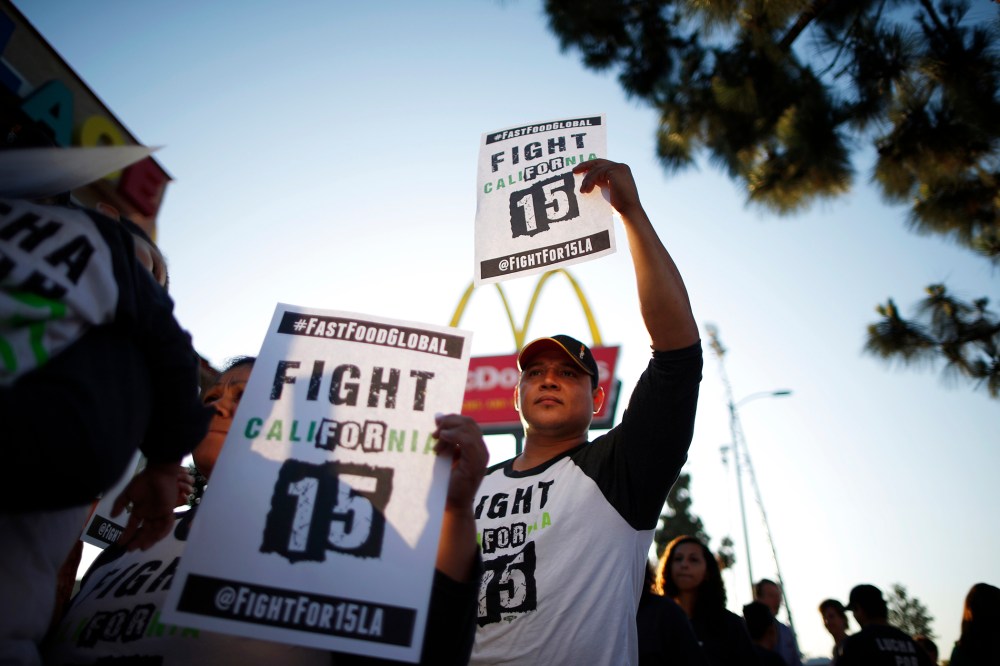In a year of major Republican victories, the campaign to raise the minimum wage has been the rare success story for the left. Twenty states will see a minimum wage increase in 2015—more than half because state legislatures passed a law or voters approved a ballot initiative to do so.
Progressive advocates say other, broader reforms need to be in the spotlight as well. And the pressure to focus on middle-class incomes and wages will only grow as the 2016 election draws nearer, and candidates work to court the broader electorate.
RELATED: 20 states to raise minimum wage by New Year’s Day
States with minimum wage increases in 2015
Hover over states to see their new wages
Source: Economic Policy Institute
“Raising the minimum wage is great, but it’s not going to solve the problem of massive inequality in this country,” said Jennifer Epps-Addison, a Wisconsin labor organizer, speaking at an AFL-CIO event on Wednesday. “We need a living wage for everyone.”
The AFL-CIO has its own plans for moving forward. At Wednesday’s event, the labor union announced a new campaign in four states holding early presidential contests—Iowa, New Hampshire, South Carolina and Nevada—intended to hold 2016 candidates accountable for their position on income inequality and proposals that would help raise ordinary workers’ wages.
“Raising wages is the single standard by which leadership will be judged,” AFL-CIO president Richard Trumka said in a speech at the summit.
Whether or not she runs in 2016, Massachusetts Democratic Sen. Elizabeth Warren is likely to become a liberal standard-bearer on the issue. At the AFL-CIO event, she made it clear that her focus is squarely on raising middle-class incomes, mentioning the minimum wage only in passing.
“For more than 30 years, Washington has far too often advanced policies that hammer America’s middle class even harder,” Warren said. “Look at the choices Washington has made, the choices that have left America’s middle class in a deep hole.”
Warren’s suggested reforms were broad—infrastructure investment, corporate tax hikes and trade policy (an issue that’s pitted her against the White House). But the idea that drew the biggest reaction from the crowd was the one most directly connected to wages: workers’ right to be fully paid for what they earn.
“We believe in enforcing labor laws, so that workers get overtime pay and pensions that are fully funded,” Warren said, to big cheers and applause.











